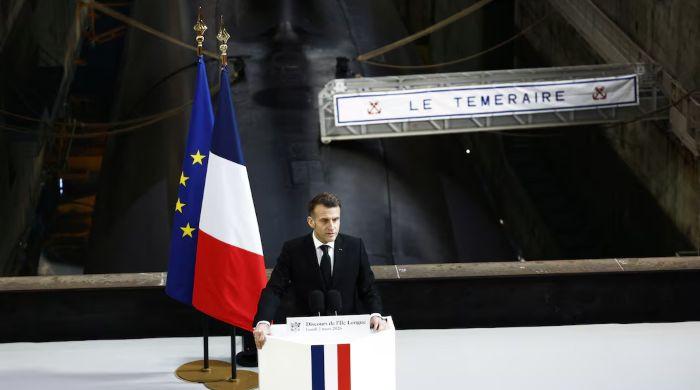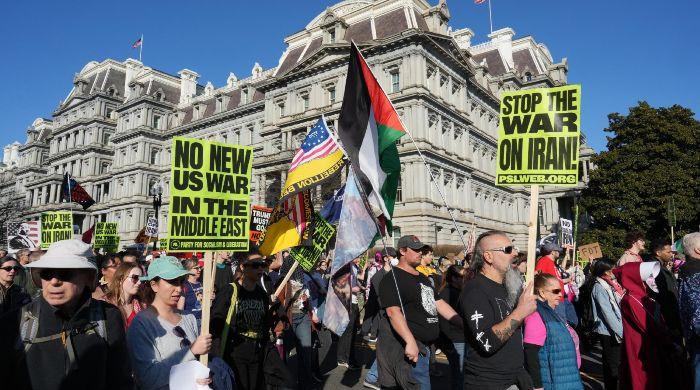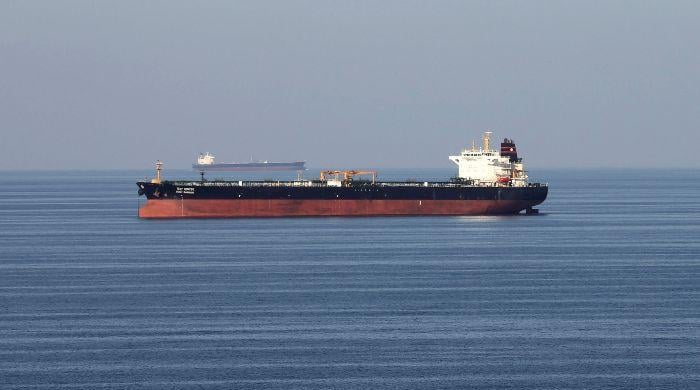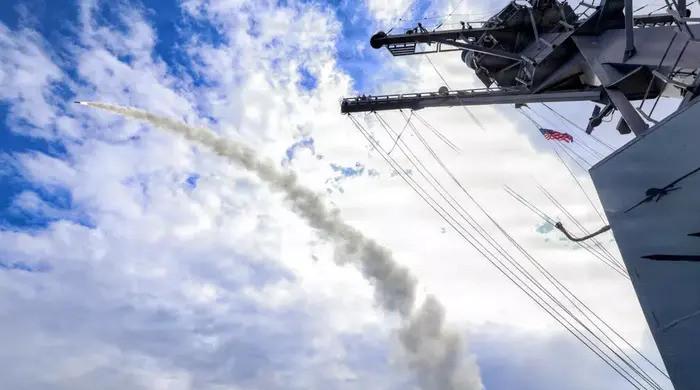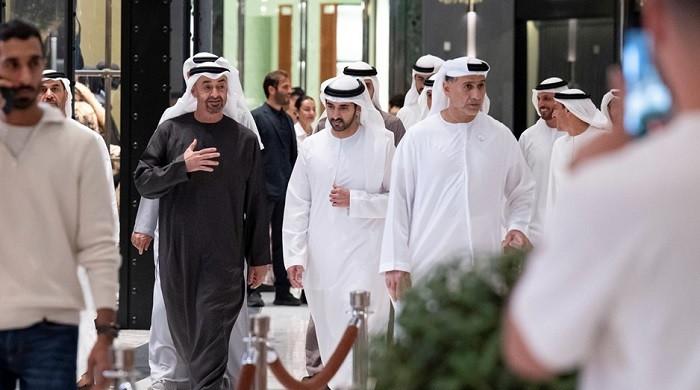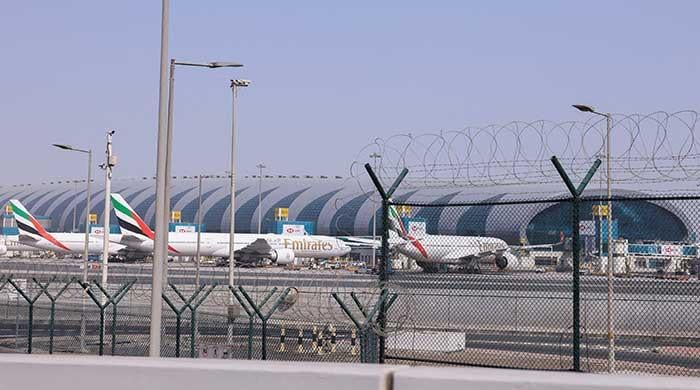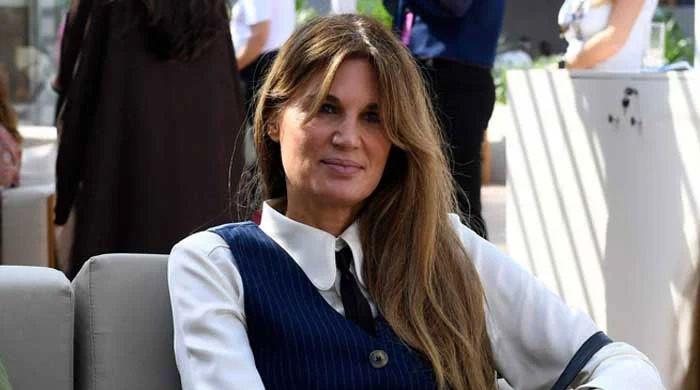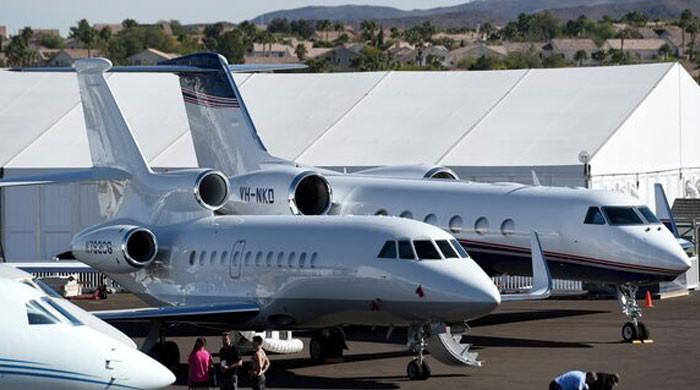'Cannot forget Pakistan', President Trump makes it known to India
Trump says Pakistan-India ceasefire mediation is biggest credit he’s received
May 17, 2025
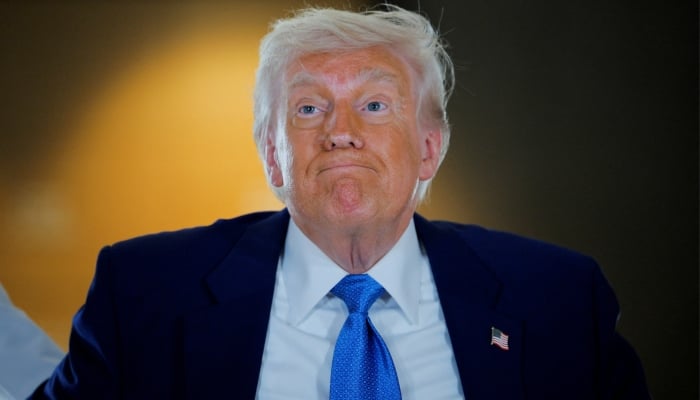
- Donald Trump says both nations were "angry".
- He says nuclear war "worst thing that can happen".
- "I am a man of my word," says US president.
US President Donald Trump is elated by the unprecedented praise he has received from all over the world for mediating between India and Pakistan and averting an "imminent nuclear war" between the arch-rival nations.
After concluding a trip to the Middle East where he visited Saudi Arabia, Qatar, and the UAE to secure $10 trillion deals, President Trump sat down with the host of Fox News.
He talked at length about the developments taking place in the Arab region and also touched upon parleys with Iran. The prospect of long-term peace after the recent Russia-Ukraine talks in Istanbul also came into focus.
However, what President Trump repeatedly wanted to emphasise was his role as a peacemaker in diffusing escalation between India and Pakistan.
Without presenting any evidence of involvement in the Pahalgam incident in Indian Illegally Occupied Jammu and Kashmir, New Delhi, on May 6, Delhi had waged an unprovoked war against Islamabad.
In order to ensure its sovereignty, Pakistan was left with little option but to retaliate and bring the aggressor to its senses. In doing so, it also shocked the world by taking down six Indian fighter jets including three Rafael, an S-400 missile defense system, and hacking core installments.
It was the first time in its history that India had faced such a humiliation by an underdog Pakistan. For these very reasons, fears were being expressed that the belittled Modi regime would go to any extreme to restore its lost honour.
'Biggest success'
What Modi was miscalculating were the risks he was posing to his own nation, pumped up by right-wing media and extreme Hindutva ideology.
Yet, the United States of America, the closest ally of India, was not in oblivion. President Trump immediately directed Secretary of State Marco Rubio to call top Indian officials and then convince Pakistan to observe restraint.
In a matter of hours, both warring nations restored hotline contacts and agreed to a ceasefire. This positive development gave a huge relief to the international community that was holding its breath and wondering where this escalation would lead.
"The biggest success that I have ever been given credit for," President Trump acknowledged with joy to the Fox News host. He admitted that India and Pakistan are "not a little bit" but "major nuclear powers" and explained how, amid a full-blown war between these two countries, he averted a major mishap in the South Asian region.
"They were angry. And the next phase was, probably did you see, what was getting tit for tat. It was getting deeper and more missiles. Everyone was stronger, stronger to a point, with the next one was, you know what the N (Nuclear) word. It's a very nasty word in lot of ways. The N-word is used in a nuclear sense. It's the worst thing that can happen. And I think they were very close," President Trump told the interviewer.
Then he explained what tools he employed to achieve the ceasefire. "The hatred was great and I said, we are going to talk about trade. We are going to do a lot of trade....I am using trade to settle scores and make peace."
He expressed relief that his efforts bore fruit. "That was going to be a nuclear war I think or close, very close. You were right there. And now everyone is happy."
'Love to trade'
Though the Fox News host wanted to move on to other topics, President Trump took a moment to mention his relations with Pakistan.
"I had a great conversation with Pakistan. You know, we cannot forget them. Because it does take two to tango. And with India, I felt very certain and with Pakistan, I also talked about trade. They would love to trade."
Then he praised Pakistan and its people in a way that has pleasantly surprised diplomats around the world. And that is something Islamabad has long desired. After all, for the last few decades, the US-Pakistan relationship has revolved around antiterrorism cooperation but not trade.
"They are brilliant people. They make incredible products. And we don't do much trade with them. And yet I have a good relationship. In fact, I told my people, call them up. Let's start trading and meeting because I am a man of my word."
Though the United States of America is the largest trading partner of India, their bilateral trade had touched almost $129bn in 2024. However, it favoured Delhi most as it ran a $45.7bn surplus with Washington. No surprise that in the same breath, President Trump blamed India for hurting US businesses.
"India is one of the highest taxed tariff nations in the world. They make it almost impossible to do business," remarked President Trump. And then he repeated that: "You know they are willing to cut 100% of their tariff for the United States."
Need to bolster relations
No doubt, the leadership role of Prime Minister Shehbaz Sharif and the meticulous war planning of the Chief of Army Staff General Asim Munir must be lauded for transforming Pakistan's image.
At the same time Foreign Minister Ishaq Dar, who had long made his name for being one of the finest finance ministers, should be credited for exemplary diplomacy and guidance to Pakistan's Ambassadors to the United States, UN, United Kingdom, Saudi Arabia, Turkiye and Iran.
However, experts believe that for Islamabad, there is no ground for complacency. Come what may, India will remain one of the top allies of the United States of America.
Nonetheless, Pakistan must utilise this moment to strike a better trade deal with President Trump and forge a relationship based on trade instead of merely fostering antiterrorism cooperation.




